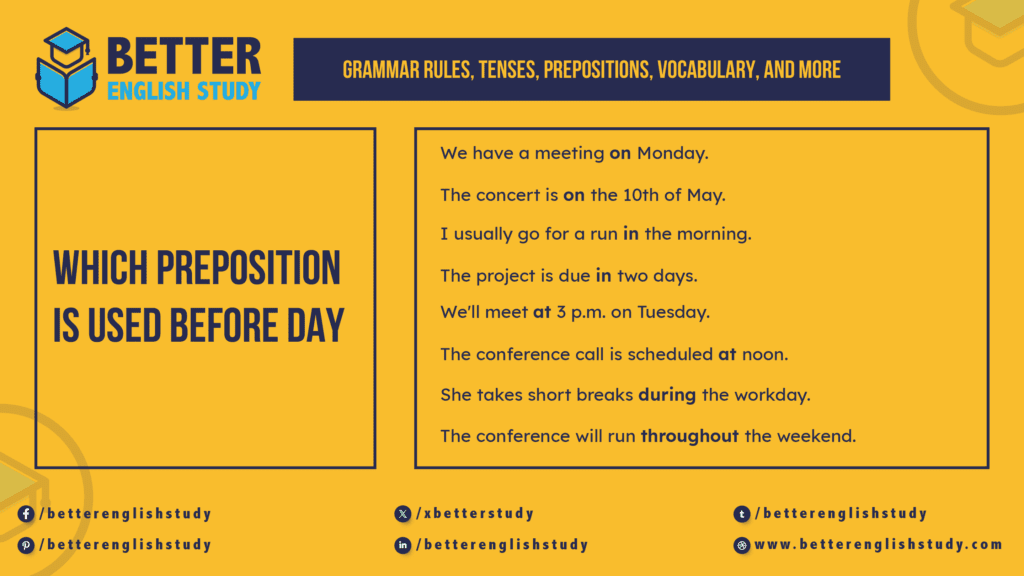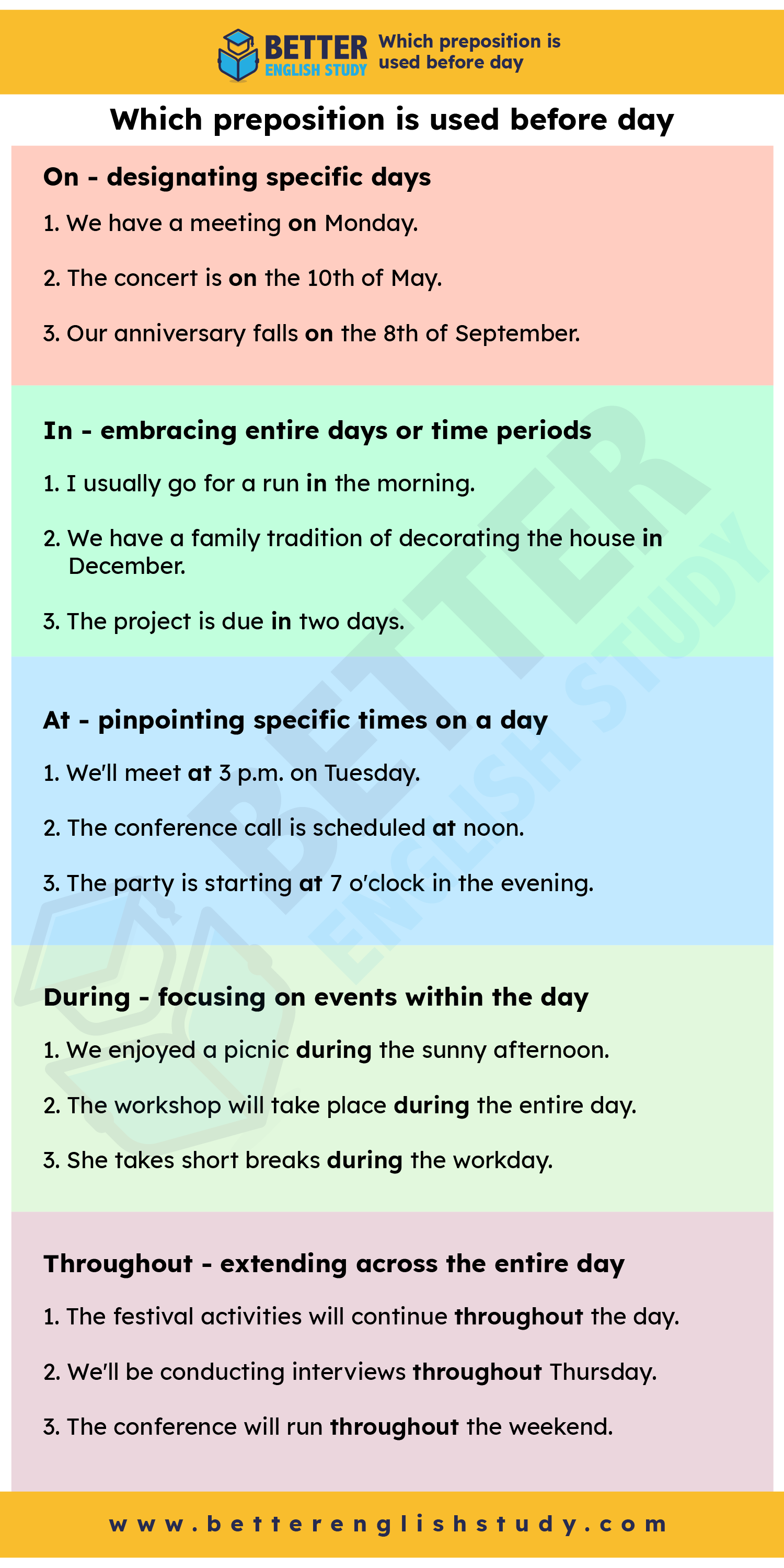
In the intricate landscape of the English language, prepositions serve as guiding signposts, directing our expressions with precision. When referring to days, selecting the appropriate preposition is paramount for conveying accurate temporal relationships.
“On” is versatile for specifying particular days, while “in” encompasses entire days or time periods. “At” is precise for pinpointing specific times, “during” emphasizes events within the day, and “throughout” signifies continuity across the entire day.
In this article, we will unravel the subtleties of prepositions used before days, exploring the nuanced distinctions that contribute to effective communication.
On – designating specific days
The preposition “on” is a versatile choice when referring to specific days within a week or month.
Examples:
- We have a meeting on Monday.
- The concert is on the 10th of May.
- Our anniversary falls on the 8th of September.
In – embracing entire days or time periods
The preposition “in” is employed to denote time periods within which events or activities occur.
Examples:
- I usually go for a run in the morning.
- We have a family tradition of decorating the house in December.
- The project is due in two days.
At – pinpointing specific times on a day
The preposition “at” is used when indicating specific points in time within a day.
Examples:
- We’ll meet at 3 p.m. on Tuesday.
- The conference call is scheduled at noon.
- The party is starting at 7 o’clock in the evening.
During – focusing on events within the day
The preposition “during” is employed to emphasize events or activities occurring within the duration of a day.
Examples:
- We enjoyed a picnic during the sunny afternoon.
- The workshop will take place during the entire day.
- She takes short breaks during the workday.

Throughout – extending across the entire day
The preposition “throughout” conveys continuity and is used to describe events or conditions that persist over the entire duration of a day.
Examples:
- The festival activities will continue throughout the day.
- We’ll be conducting interviews throughout Thursday.
- The conference will run throughout the weekend.
In conclusion, the choice of preposition before a day depends on the specific temporal relationship being expressed.
Whether pinpointing a specific day with “on,” emphasizing a time period with “in,” indicating a particular time with “at,” highlighting events within the day with “during,” or conveying continuity throughout the day with “throughout,” each preposition serves a unique purpose.
Understanding these subtle distinctions empowers individuals to articulate temporal relationships accurately, contributing to effective communication in various contexts.
